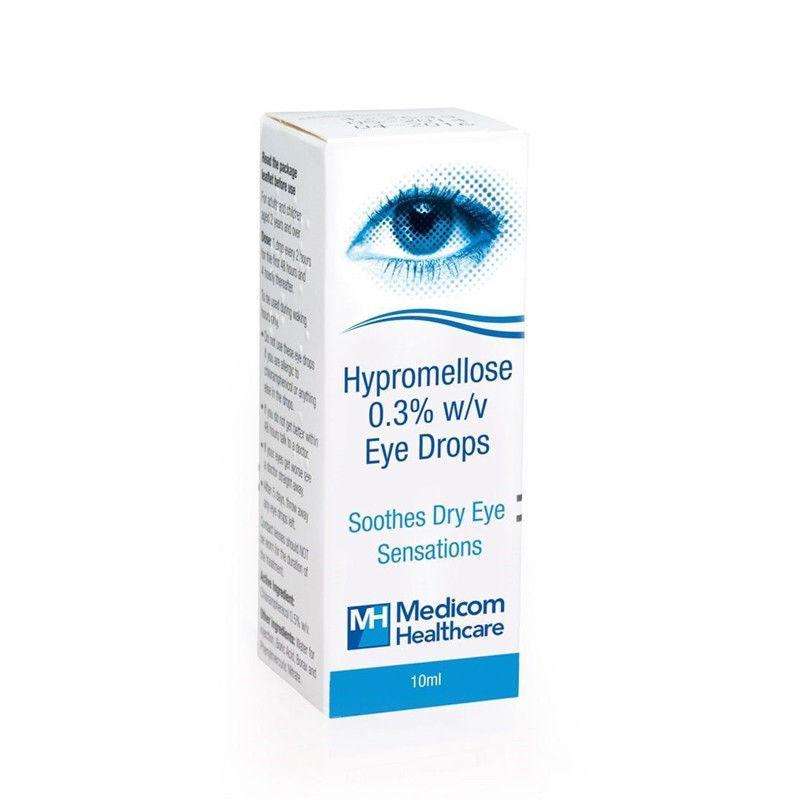Hypromellose 0.3% Eye Drops

Fastest delivery:
Order by 01:00pm
-

Secure & Discreet Delivery
Fast, tracked delivery from only £2.49. Free for orders over £60.
-

100% UK-based pharmacy
We have a UK-based team of pharmacists and support staff.
-

Free support and advice
We're on hand to offer free support and advice by email and telephone (Mon - Fri 09:00 - 18:00).
-

Experience & Compassion
We have a friendly, experienced pharmacy team here to service your needs with care.
Description
For Dry Eyes
Gently Soothes
Moisturises
Comforts
Warnings
May cause transient mild stinging or temporary blurred vision. If irritation persists or worsens, or headache, eye pain, vision changes or continued redness occur, patients should discontinue use and consult a physician or pharmacist.
Do not touch any part of the eye with the dropper to preserve the sterility.
This formulation of Hypromellose eye drops contains 0.1mg/ml benzalkonium chloride as preservative which may be deposited in soft contact lenses. Hence, Hypromellose should not be used while wearing these lenses. The lenses should be removed before instillation of the drops and not reinserted earlier than 15 minutes after use.
Benzalkonium chloride has been reported to cause eye irritation, symptoms of dry eyes and may affect the tear film and corneal surface. Should be used with caution in dry eye patients and in patients where the cornea may be compromised. Patients should be monitored in case of prolonged use.
For any extra information, please contact your healthcare provider or contact us.
Directions
The recommended dosage for adults, children and elderly is one drop into the eye two to four times daily as needed, or as required depending on the severity of your dry eye sensation or as directed by your health professional.
Method of administration: For ocular use only.
Ingredients
Hypromellose USP 0.3% w/v
Sodium chloride
Potassium chloride
Borax
Boric acid
Benzalkonium chloride solution
Water for injections
Side Effects
The following adverse reactions have been reported following administration of Hypromellose.
Frequency cannot be estimated from the available data:
Eye disorder:
• transient mild stinging or vision blurred,
• eye pain,
• foreign body sensation in eyes,
• eye irritation,
• ocular hyperaemia.
Reporting of suspected adverse reactions
Reporting suspected adverse reactions after authorisation of the medicinal product is important. It allows continued monitoring of the benefit/risk balance of the medicinal product. Healthcare professionals are asked to report any suspected adverse reactions via Yellow card scheme at www.mhra.gov.uk/yellowcard or search for MHRA Yellow Card in the Google Play or Apple App Store.


